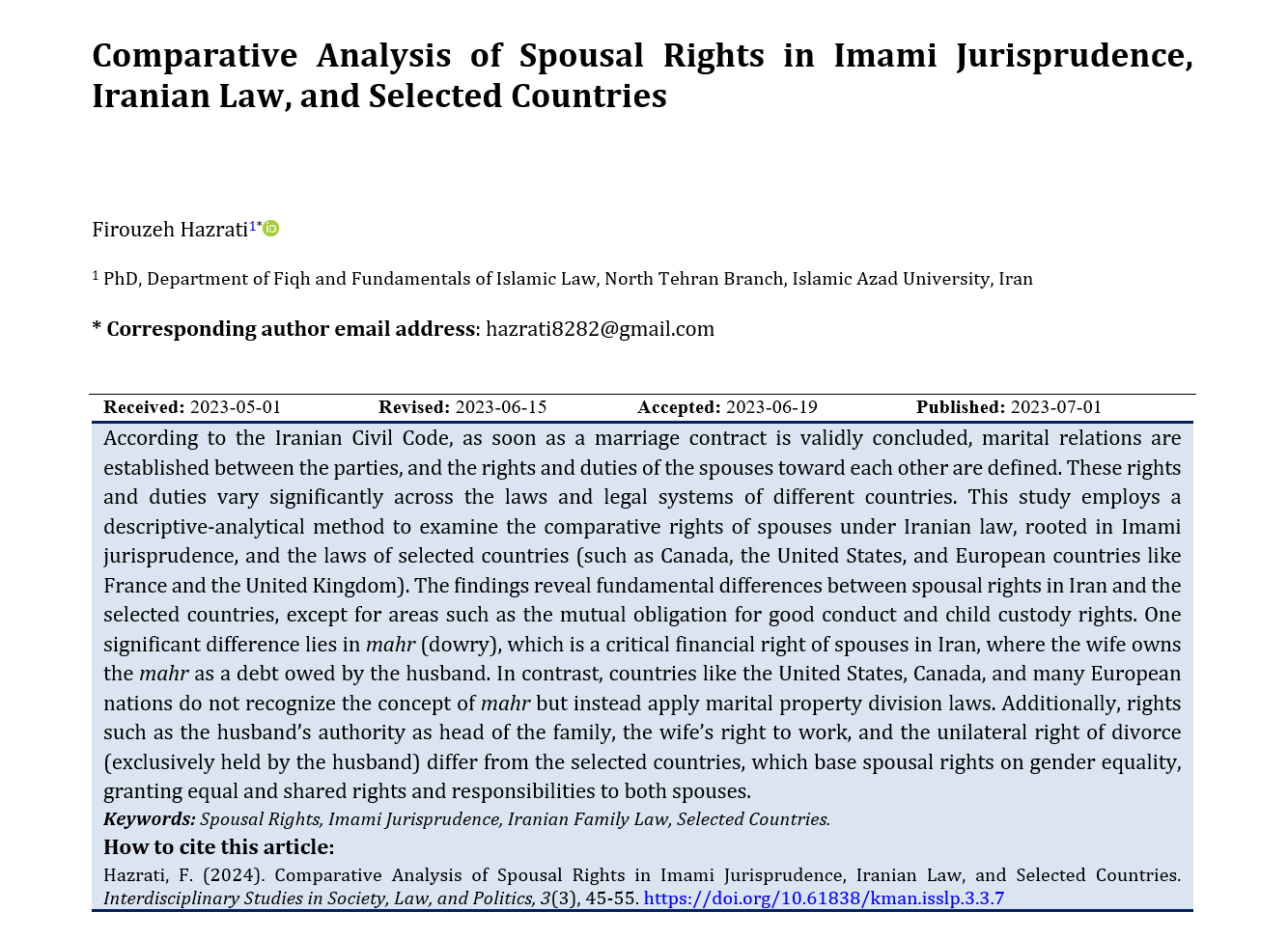Comparative Analysis of Spousal Rights in Imami Jurisprudence, Iranian Law, and Selected Countries
Keywords:
Spousal Rights, Imami Jurisprudence, Iranian Family Law, Selected CountriesAbstract
According to the Iranian Civil Code, as soon as a marriage contract is validly concluded, marital relations are established between the parties, and the rights and duties of the spouses toward each other are defined. These rights and duties vary significantly across the laws and legal systems of different countries. This study employs a descriptive-analytical method to examine the comparative rights of spouses under Iranian law, rooted in Imami jurisprudence, and the laws of selected countries (such as Canada, the United States, and European countries like France and the United Kingdom). The findings reveal fundamental differences between spousal rights in Iran and the selected countries, except for areas such as the mutual obligation for good conduct and child custody rights. One significant difference lies in mahr (dowry), which is a critical financial right of spouses in Iran, where the wife owns the mahr as a debt owed by the husband. In contrast, countries like the United States, Canada, and many European nations do not recognize the concept of mahr but instead apply marital property division laws. Additionally, rights such as the husband’s authority as head of the family, the wife’s right to work, and the unilateral right of divorce (exclusively held by the husband) differ from the selected countries, which base spousal rights on gender equality, granting equal and shared rights and responsibilities to both spouses.
Downloads






